Sports and physical activity play a crucial role in a child's growth and development, but many young athletes overlook one of the most essential aspects of their performance—nutrition. Proper young athletes' nutrition is not just about eating enough but about consuming the right balance of nutrients to fuel performance, aid recovery, and support long-term health. Along with this, young athletes' hydration is equally critical, as even mild dehydration can lead to fatigue, reduced coordination, and impaired concentration.
In this post, we will explore why young athletes' healthy eating habits are essential, the impact of hydration on performance, and how young athletes can optimize their nutrition for peak athletic success.
The Role of Nutrition in Athletic Performance
Young athletes have higher energy demands than their sedentary peers. The combination of growth, training, and competition increases their need for macronutrients—carbohydrates, proteins, and fats—as well as vitamins and minerals that aid muscle recovery and performance.
According to the Dietary Guidelines for Americans, children between the ages of 9–18 who engage in regular physical activity require anywhere from 1,600 to 3,200 calories per day, depending on their level of exertion. A well-balanced diet provides the necessary energy and nutrients to enhance endurance, strength, and focus while reducing the risk of injury and illness.
A study published in the Journal of the International Society of Sports Nutrition highlights that carbohydrate intake before and during prolonged exercise enhances endurance and delays fatigue. For young athletes, this means incorporating whole grains, fruits, and vegetables into their diet to maintain energy levels during training and competitions.
Hydration: The Key to Athletic Success
Proper young athletes' hydration is just as important as nutrition. Water is essential for regulating body temperature, transporting nutrients, and preventing dehydration, which can negatively affect strength, speed, and cognitive function.
The American Academy of Pediatrics recommends that young athletes drink at least 10–15 ounces of water every 20–30 minutes during physical activity. However, hydration needs vary based on the sport, intensity level, and environmental conditions. For example, athletes training in hot or humid weather need even more fluids to compensate for excessive sweating.
Studies show that a 2% loss in body weight due to dehydration can result in a 10% decline in performance. This means that a young soccer player weighing 100 pounds could see a noticeable decrease in speed, endurance, and reaction time if they lose just two pounds of water weight during a game.
To stay hydrated, young athletes should:
- Drink water regularly throughout the day, not just during practice or games.
- Consume electrolyte-rich drinks after prolonged or intense exercise to replenish sodium and potassium lost through sweat.
- Avoid sugary sodas and energy drinks, which can lead to dehydration rather than proper fluid retention.
Building a Balanced Diet for Young Athletes
The foundation of young athletes' healthy eating is a well-balanced diet that includes a mix of carbohydrates, proteins, healthy fats, vitamins, and minerals. Each macronutrient plays a critical role in athletic performance and recovery.
Carbohydrates: The Primary Energy Source
Carbohydrates are the body's preferred fuel source, particularly for high-intensity sports such as basketball, soccer, and swimming. Research from the National Strength and Conditioning Association (NSCA) states that 45-65% of a young athlete's daily caloric intake should come from carbohydrates.
Good sources of carbohydrates include:
- Whole grains (brown rice, quinoa, whole wheat bread)
- Fruits and vegetables
- Dairy products (milk, yogurt)
- Legumes (beans, lentils)

Protein: The Building Block for Muscles
Protein is essential for muscle growth and repair, which is why young athletes should prioritize protein intake, especially after workouts. The American College of Sports Medicine recommends 0.45–0.6 grams of protein per pound of body weight for young athletes.
High-quality protein sources include:
- Lean meats (chicken, turkey, fish)
- Eggs
- Dairy products (Greek yogurt, cheese)
- Plant-based proteins (tofu, beans, nuts, seeds)
Healthy Fats: Fuel for Endurance
Fats provide a secondary source of energy, particularly for endurance-based sports like long-distance running or cycling. According to the Academy of Nutrition and Dietetics, 20-35% of a young athlete’s diet should come from healthy fats.
Nutritious fat sources include:
- Avocados
- Nuts and seeds
- Olive oil
- Fatty fish (salmon, tuna)
The Importance of Meal Timing
When young athletes eat is just as important as what they eat. Proper meal timing ensures a steady supply of energy throughout the day and optimizes recovery after exercise.
Pre-Workout Nutrition
Eating the right foods before training or competition can significantly impact performance. A meal or snack rich in carbohydrates and moderate in protein should be consumed 1-3 hours before exercise to provide sustained energy.
Ideal pre-workout snacks include:
- A banana with peanut butter
- Whole-grain toast with eggs
- Greek yogurt with granola
Post-Workout Recovery
After exercise, the body needs nutrients to repair muscle tissues and replenish glycogen stores. The ideal post-workout meal consists of carbohydrates and protein in a 3:1 ratio, consumed within 30-60 minutes of finishing exercise.
Great recovery options include:
- A protein smoothie with fruit and milk
- Grilled chicken with quinoa and vegetables
- Cottage cheese with berries and almonds
Common Nutrition Mistakes Young Athletes Make
Many young athletes unknowingly make dietary mistakes that hinder their performance. Some of the most common include:
- Skipping Breakfast – A nutritious breakfast jumpstarts metabolism and provides energy for morning training sessions.
- Over-Reliance on Processed Foods – Fast food and sugary snacks lack the essential nutrients needed for optimal performance.
- Not Eating Enough Calories – Young athletes often burn more calories than they consume, leading to fatigue and decreased endurance.
- Ignoring Hydration – Many young athletes wait until they feel thirsty to drink water, which is already a sign of dehydration.
- Not Refueling After Exercise – Skipping post-workout meals can delay muscle recovery and lead to sluggish performance.
How Parents and Coaches Can Support Young Athletes
Parents and coaches play a crucial role in shaping young athletes' nutrition habits. By providing healthy meals, encouraging hydration, and educating athletes on the importance of proper fueling, they can help maximize performance and prevent injuries.
Simple Ways to Help Young Athletes Stay on Track
- Keep nutritious snacks readily available (e.g., trail mix, yogurt, whole-grain crackers).
- Pack water bottles for practice and games to reinforce hydration.
- Lead by example—demonstrating good nutrition habits encourages young athletes to follow suit.
- Encourage balanced meals rather than restrictive dieting to promote a healthy relationship with food.
Conclusion
For young athletes, nutrition and hydration are just as important as training. A well-balanced diet filled with the right combination of carbohydrates, protein, and healthy fats ensures sustained energy, improved performance, and faster recovery. Equally, staying properly hydrated can prevent fatigue, cramps, and decreased cognitive function.
By focusing on young athletes' nutrition, hydration, and healthy eating, young sports enthusiasts can develop lifelong habits that set them up for success on and off the field. With proper fuel and hydration, the next generation of athletes can perform at their best and reach their full potential.
Fuel your young athletes with BoostedOxygenWater, the premium choice for young athletes' hydration and peak performance. Packed with oxygen-infused goodness, it enhances endurance, prevents fatigue, and accelerates recovery. Perfect for schools, sports teams, and retailers, our wholesale options provide superior hydration solutions backed by science. Keep your athletes energized, focused, and ready to win with the best in young athletes' nutrition!
Stock up today! Schedule a call with our team to discuss bulk pricing and partnership opportunities. Let’s fuel the next generation of champions together!
Reference:
1. Andrews, A., Wojcik, J., Boyd, J., & Bowers, C. (2016). Sports nutrition knowledge among mid-major division i university student-athletes. Journal of Nutrition and Metabolism, 2016, 1-5. https://doi.org/10.1155/2016/3172460
2. Kavouras, S., Arnaoutis, G., Makrillos, M., Garagouni, C., Nikolaou, E., Chira, O., … & Sidossis, L. (2011). Educational intervention on water intake improves hydration status and enhances exercise performance in athletic youth. Scandinavian Journal of Medicine and Science in Sports, 22(5), 684-689. https://doi.org/10.1111/j.1600-0838.2011.01296.x
Lee, S. and Lim, H. (2019). Development of an evidence-based nutritional intervention protocol for adolescent athletes. Physical Activity and Nutrition, 23(3), 29-38. https://doi.org/10.20463/jenb.2019.0020

